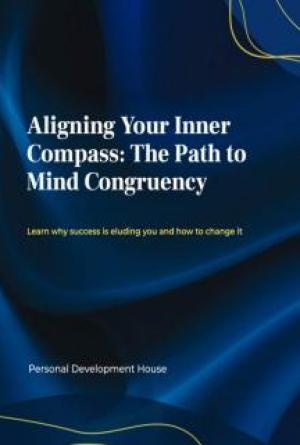[87] I
worked for a short time with a group of adolescents labeled ADHD. They had taken those labels, with all their
concomitant negatives, on as their identity and their egos invested a great
deal in that. They completely rejected
my attempt to see them as whole and healthy in themselves by showing them my
authentic unconditional positive regard.
[88] Pedagogy of the Oppressed, 1968, 1970.
[89] Through the Moral Maze: Searching of
Absolute Values in a Pluralistic World, 98.
[90]
In The Art of Loving, Erich Fromm
tells us that in one translation, the divine responds to Moses' need to know
the name of God by saying, "I am that I am becoming."
[91]
As I write, I realize that I include these "as I write" sections
because this book is becoming as I write it.
That also means that I am becoming as I write it. Beyond that, it means that the book is
becoming as you read it, for your reading will offer the book its immediate
form whatever my intentions and desires at the moment of composition.
[92]
We can even look at our adult selves and question why adults feel such powerful
emotional responses to a baby's cry, the ones for whom we care especially and
the ones we don't know as well.
[93]
We all know the ubiquitous quote, " Winning isn't everything. Winning is
the only thing," ascribed to Vince Lombardi and others. The Modern Olympic creed expressed by its
founder Pierre de Coubertin: "The most important thing . . . is not
winning but taking part (in the Games)” scarcely has any currency anywhere and
especially in Olympic competition.
[94]
When I played competitive games, Monopoly as a quintessential example, I wanted
desperately to win. In that
specifically, we make plans to beat the other persons or person playing. I also found that although I felt some
success at wining, I felt absolutely terrible at the other's disappointment and
pain at losing. That turns out an
uncomfortable place to arrive. Without a
desire to beat somebody else, all I had left was the unhappiness of being
beaten by somebody else. If I won, I
felt bad. If I lost, I felt bad. When I actually felt the results of
competition, I just felt bad. So I
stopped and in doing so, I believe I returned to the becoming self. That facet of my whole being seeks a
non-competitive community of mutual support for excellence not the denial of
the unconditional to anyone by beating them.
[95]
Old Western movies often featured the idea and the figure of the fastest
gun. Once established as the fastest
gun, the winner and temporary holder of the epithet becomes the target of every
other gun in the West. Eventually, we
are assured by the movie, a faster gun will come and take the number one
position. In these movies, being number
two meant being dead.
[96]
The idea of our saying "Yes" to personal power as opposed to
positional power comes from the writing and practice of Patricia Cranton.
[97]
Once again, we can look at Alfie Kohn's Punishment
by Rewards for clarification along with the very concrete story of Mr.
Armstrong again.
[98]
Juliet B. Schor discusses an abundant way of life in
an economic form in her book Plenitude :
the new economics of true wealth.
[99]
Another realization or clarification makes an appearance. When we experience a rise in what we call
revolutionary feelings and activity, we see and feel a hope for things to start
anew in some way. The problem comes when
the revolutionary movement, as happened in the Sixties and Seventies, remains
mired in the dominator, competitive meaning perspective. From that revolutionary fervor, no matter
how sincere and well meaning, a hierarchy will appear which will generally
coerce people, in one way or another, into conforming to the revolution—now the
dominating form of the dominator model.
[100] Family Members in Arabic—http://www.italki.com/groups/563/topic/30036.htm#.UQev9B3Ae3E
[101]
George Orwell appends that book he wrote, 1984,
with a section on Newspeak. In this
section, he makes the claim that we cannot think about what we cannot say. When the dominator controls the language, the
dominator controls our thought.
[102] To Have or to Be discusses the language
of having and being extensively.
[103]
You may have found my attempts at getting around such language in this writing
somewhat awkward. This holds especially
true when I discuss parents and children.
Still, it accentuates this point.
We do not own the children for whom we care. We do not even own ourselves. We be who we are becoming. We can and do feel we possess our identity
and ego.
[104]
It may also be the case that the having identity constantly seeks some form of
personal gain or recognition. After all,
its business manifests in continuing to maintain visibility, an image in the
world. In the case of compassion, if we ask,
"How good will some compassionate act make me feel?" it converts from
possible compassion to just another material exchange. That same holds true for wondering about how
this compassionate act or another would make the identity look to the world, to
those who matter.
[105]
Immanuel Kant saw this distinction and called the hypothetical imperative and
the categorical imperative. The hypothetical imperative acts only in a manner
for potential exchange: "If I do A
then I will get B, so I will do A."
The categorical imperative acts in aid of simply doing the right
thing: "I do A because this
situation calls for me to do A as the right thing to do."
[106]
Jiddu Krishnamurti suggests that we consider moving a stone from a path or a
nail from a road to make the world safer for an unknown person who will
pass. In a nearby cancer center, someone
placed a basket of knitted hats for bald and balding heads. The sign read, "Free. Please take one." The giver remains unknown but the receiver
feels the gift of care in a hard time.
This comes as an anonymous compassionate exchange of the becoming self
with nothing owed and nothing gained materially or even in image. Such acts make the world a better place, a
stronger moral sphere.
[107]
This phrase stems from one I discovered through my relationship with
Silvia. It occurred to me one day that I
loved her more every day, and I had never loved her less.
[108]
By "tragic optimism," Frankl means the following: Optimism because we can optimize whatever we
see in the world and in ourselves.
Tragic because such optimism answers the tragic inevitabilities of life:
suffering, guilt, and death. In such
optimism, we can find meaning in suffering, learning in guilt, and in the face
of death experience the intensely valuable nature of life. This also serves as another way of saying,
"Yes," to life in spite of everything. In Man's
Search for Meaning.
[109]
This happens to us generally because we have decided on a "No":
"I will not act like my mother."
However, we have not developed a "Yes," so when the time
comes, we feel we have to do something as a parent. We turn into acting like the mother because
we nothing else to do. As always, we
accomplish far more by affirming and acting on a "Yes" (what I am
going to choose) than of denying and defying in a "No" with nothing
to do in its stead. As human beings, we
generally need to act to satisfy an immediate situation.
[110]
Although adults often deny that children can feel and exercise the
unconditional, Silvia reminded me otherwise.
She treated her doll, as many if not all children treat some object,
with unconditional positive regard. She
treated her doll in imitation of the mother who gave her care, and she also did
so in a way she felt natural, spontaneous, and self-generated.
[111]
We address the idea of love in a being sense not a having sense. Erich Fromm says, “Love is the only sane and
satisfactory answer to the problem of human existence.” When we possess our lover, we have lost our
love.
[112]
The feelings of that time in my life have not completely gone. Just now, I inadvertently deleted all of
yesterday's work. Out of that came
invitations to anger, self-abuse, and depression. I choose to write it again, knowing what I
lost remains lost even if the second version has offered more teaching and even
some improvement in the writing. The
becoming self knows and accepts loss for what it is and what it isn't. Somehow, the writing still lives in me and
expresses what it taught me even if I can't get back to it word for word. Wordsworth touches on this realization of the
becoming self in "Ode on Intimations of Immortality from Recollections of
Early Childhood ": "Though nothing can bring back the hour /Of
splendour in the grass, of glory in the flower; /We will grieve not, rather
find /Strength in what remains behind."
[113]
A physical analogy happens quite frequently.
If a child is born with a defect in vision, the child will not know or
report that defect because the child has no awareness of difference with any
other vision. This often becomes evident
when the child engages in some task, like looking at writing in a school
setting. The defect may then become
clear to others. Sometimes the lack of
visual acuity is mistaken for a lack of intellectual acuity which will make
matters much worse. This is also
analogous to a critical moment in our lives when a meaning perspective becomes
evident to us. How we respond to that
awareness will change our life in some way or another.
[114]
Philip Zimbardo does not use the phrase, meaning perspective in his examination of evil in his Stanford
prison study, but the presence of such elements in action make themselves
evident. Stanley Milgram's work in his
"Behavioral Study of Obedience" also shows that apparently reasonable
people will act in evil ways when the meaning perspectives they hold and are
instructed to hold tell them that they have no choice but to act in the way
directed by the meaning perspective in response to a specific context. In both cases, apparently reasonable people
inflicted actions on others which were degrading and even dangerous.
[115]
The book Mistakes Were Made (But Not by
Me): why we justify foolish beliefs, bad decisions, and hurtful acts by
Carol Tavris and Elliot Aronson examines the processes of cognitive dissonance
and self-justification in depth.
[116]
When we change a light bulb, for a very accessible example, we no longer find
anything good about the bulb that needs changing. We throw it away.
[117]
This phrase comes from Patricia Cranton a deservedly well known and respected
educator in transformative learning.
[118]
One nifty example of that came when Silvia and I watched Gavin holding on to
the bars of his crib. We all know that
children of that age are supposed to
sleep and play in a crib. He looked like
someone in the slammer peering out through the bars. When we examined the supposed to meaning perspective we found in this situation, we
couldn't think of anything that could keep Gavin sentenced to crib
imprisonment. We made accommodations so
that he would sleep safely even as he stayed naturally free of the crib
slammer. He seemed quite happy to be
freed. He also helped teach me to see
things through the eyes of others.
[119]
"The Love Song of J. Alfred Prufrock “ In a very
real sense, we can say that Eliot/Prufrock's awareness of these
"faces" shows an intuitive awareness the violated authenticity.
[120]
Soon after the above happened, I encountered a book that presented a very
similar observation: The Inner Game of
Work, W. Timothy Gallwey, Random House, New York, 2000.
[121]
In a very personal note, I wrote to Dr. Frankl to tell him that he and his book
had liberated me from my self-constructed concentration camp of mind as surely
as the Sixth Army Corps had liberated him.
Well into his nineties, he chose to answer me and thank me for my new
way of seeing his work. That was his
choice.
[122]
Silvia Rayces introduced me to the idea of "family myths" which she
received from studies in a Marital and Family Therapy course.
[123]
She told me that she attended a class at the local community college. The teacher told her that she was so
"cute," that she would get an "A" in the class. I called that sexual harassment and an abuse
of power. She found it dismissive and
impossible to get through. She attended
the class, didn't do much, and she received her "cute" and belittling
grade.
[124]
Powerlessness also links to levels of competition and the nature of denying
another person's power by beating them at one competition or another, by taking
a victory and thus position power over and away from the other.
[125]
We can also notice that meaning perspective, highly related to prejudice, often
if not always works as a syllogism.
"All women are liars" serves as the major premise. "Silvia is a woman" serves as the
minor premise. "Silvia is a
liar" comes as the supposedly logical conclusion. The structure is valid, but only as
structure. The major premise is false,
as are many "all" statements of a certain kind; therefore, we wind up
with something that sounds logical but really makes no sense. When we choose to question our major
premises, critically reflect on them, we engage in transformative learning.
[126]
As the facilitator of a life's skills diversion program, I found that when the
participants understood that the purpose of the program wished them good and not
punishment, they responded far more openly and participated far more fully than
when they thought I was there to lecture them on their criminality. When they knew I wished them good, they
reported feeling far more open to the information and discussion. They came to know that the program offered
them a chance to make new choices that would help them achieve the ends they
wanted. My work with them wished them
the empowerment that comes with understanding and acting out of the becoming
self.
[127]
The idea that we are all customers might sound off-putting as if that would
degrade our all our human exchanges into a demeaning economic exchange. What it could mean, what we meant, would
raise the level of business transactions into the human exchange, into the
collaborative and caring model rather than the dominator model of working with
each other—customer service as the I/Thou relationship, an expression of the
unconditional.
[128]
The overstressing of body language makes this less clear than necessary. Cultural meaning perspectives dominate the
way in which we interpret body language.
Thereby our interpretation of body language often provides us the wrong
cue for understanding and really hearing the person involved. One body posture or movement in one culture
may say something quite normal and acceptable in one place and nearly obscene
and objectionable in another. That issue
arose during the conflict in and occupation of Iraq with the ambiguity of the
"thumbs up" sign.
[129]
For many, the preferred form or response has become, "no
problem." That seems lacking to me
in its verbal expression, but I like to believe that the spirit behind it is
the same as in "you're welcome," as in saying, "for you, I feel
completely at ease in answering your need."
[130]
George Orwell in the Newspeak section of 1984
describes how an absolute dominator uses the deprivation of complex language to
exclude all types of unwanted and thus forbidden or taboo thoughts. If we can't say it, we can't think it. If we can't think it, it soon ceases to
exist. The form of thought dies with the
language.
[131]
We can actually strive for this the other way around. Without unnecessary personal exposé, I
disliked, perhaps hated would be more accurate, myself quite deeply for all of
my remembered life. As part of my
working toward a more liberated life, toward my becoming self as it turned out
although I was unaware of such an effort, I chose to treat others as I had
always wished to be treated by others (even though I did not treat myself in
that way). The struggle came in the
inner dislike I endlessly expressed toward myself. I see now that my expression of the
unconditional to others eventually allowed me to find some compassion for
myself at very long last.
[132]
This may serve as the reason why others often ask me if I am not afraid of
being used, or misused, by others such as those who ask for money on the
street. That worried me for a moment,
and then I realized something I find true for myself. If I choose to act out of the end principle
and within the moral sphere to help someone else, I choose to serve the want
the other person as expressed to me by that person. In that way, I can't be taken advantage of or
manipulated because of the freely chosen and authentic nature of my act. If the other person thinks she/he is getting
one off on me, that serves as their choice to degrade themselves and their
reception of my act which happens on their terms. I make a gift in gratitude for the chance to
make such a gift. If the other person
chooses to make it a theft, that's their choice, their meaning perspective,
their self-degradation. My personal
power remains intact if not stronger.
[133]
This rather introduces a problem inherent in the Golden Rule: "Do unto
others what you would have them do unto you." It can work as a modified solipsism. In that way, someone can make another a means
to an end by making an assumption or interpretation of the others needs and
acting on it. This often happens in the
case of gifts and especially surprise gifts.
People even give animals to another person as a gift, a surprise. Such a giver often would enjoy an animal as a
gift. However the r







